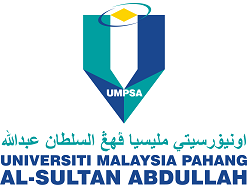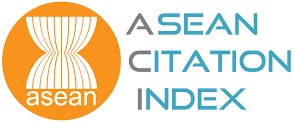The effect of portable MQL applicator onto carbide insert during turning Inconel 718
DOI:
https://doi.org/10.15282/jmes.12.2.2018.7.0319Keywords:
Turning; metal cutting; minimum quantity lubrication; MQL applicator.Abstract
Turning operations are a versatile secondary metal cutting process. In metal cutting industry, manufacturing processes are designed to attain minimum manufacturing cost, best quality and improved cutting tool's performance. Nonetheless, the deterioration of cutting tools, occupational diseases amongst the workers and environmental aspects are increasingly becoming a major issue. Therefore, one alternative to reduce the impact of metal cutting activity in term of cutting tool, the health and environment is Portable MQL Applicator. The portable MQL applicator is an equipment that equipped with pneumatic system to deliver a small amount of fluid in the form of aerosol into the cutting zone. The effect of the portable MQL applicator was investigated and compared with the results from dry machining in terms of tool life and material removal rate in turning of Inconel 718 using carbide tool. The results showed that the applications of the portable MQL applicator have successfully resulted in better tool life and improved material removal rate.
References
Elmunafi MHS, Noordin MY, Kurniawan D. Tool life of coated carbide cutting tool when turning hardened stainless steel under minimum quantity lubricant using castor oil. Procedia Manufacturing. 2015;2:563-567.
Najiha MS, Rahman MM, Kadirgama K. Experimental investigation and optimization of minimum quantity lubrication for machining of AA6061-T6. International Journal Automotive and Mechanical Engineering. 2015;11:2722- 2737.
Debnath S, Reddy MM, Yi QS. Environmental friendly cutting fluids and cooling techniques in machining: a review. Journal of Cleaner Production. 2014;83:33- 47.
Cakir A, Yagmur S, Kavak N, Kucukturk G, Seker U. The effect of minimum quantity lubrication under different parameters in the turning of AA7075 and AA2024 aluminium alloys. International Journal of Advance Manufacturing Technology. 2016;84:2515-2521.
Yazid MZA, Cheharon CH, Ghani JA, Ibrahim GA, Said AYM. Surface integrity of Inconel 718 when finish turning with PVD coated carbide tool under MQL. Procedia Engineering. 2012;19:396-401.
Chandra Behera B, Ghosh S, Venkateswara Rao P. Effects on forces and surface roughness during machining inconel 718 alloy using minimum quantity lubrication. All India Manufacturing Technology, Design and Research Conference. 2014:1-6.
Upadhyay V, Jain PK, Mehta NK. Minimum Quantity Lubrication Assisted Turning - An Overview. Daaam International Science Book 2012. 2012:463-478.
Vishwakarma A, Jain S, Sharma PK. Analysis of effect of minimum quantity lubrication on different machining parameters cutting force, surface roughness and tool wear by hard turning of AISI-4340 Alloy Steel a review. International Journal of Advanced Engineering Research and Technology. 2014;2:344-354.
Boubekri N, Shaikh V, Foster PR. A technology enabler for green machining: minimum quantity lubrication (MQL). Journal of Manufacturing Technology Management. 2010;21:556-566.
Ahmad-yazid A, Taha Z, Almanar IP. A review of cryogenic cooling in high speed machining ( HSM ) of mold and die steels. Review Literature and Arts of the Americas. 2010;5:412-427.
Shokrani A, Dhokia V, Newman ST. Environmentally conscious machining of difficult-to-machine materials with regard to cutting fluids. International Journal of Machine Tools and Manufacture. 2012;57:83-101.
Singh, Talwinder Singh, Pragat Dureja, JS Dogra M. A review of near dry machining/minimum quantity lubrication machining of difficult to machine alloys. International Journal of Machining and Machinability of Materials. 2016;18:213-251.
Groover MP. Fundamentals of Modern Manufacturing. 2010.
Shah SR. Extraction of electrical energy from heat produced during metal cutting operation on lathe by using thermocouples. International Journal of Engineering Research and Applications. 2015;5:24-35.
Kadirgama NHRMMRK. Cutting force and chip formation in end milling operation when machining nickel-based superalloy, Hastelloy C-2000. Journal of Mechanical Engineering and Sciences. 2017;11:2539-2551.
Ramamoorthy B, Vijayaraghavan L. Effect of high speed cutting parameters on the surface characteristics of Superalloy Inconel 718. Proceedings of The World Congress on Engineering 2010. 2010;3.
Thamizhmanii S, Rosli, S.Hasan. A study of minimum quantity lubrication on Inconel 718 steel. Archives of Materials Science and Engineering. 2009;39:38- 44.
Abu Yazid MZ. Kebolehmesinan Inconel 718 pada pemesinan laju tinggi dalam keadaan kuantiti pelincir minima. 2014:281.
Qin S, Li Z, Guo G, An Q, Chen M, Ming W. Analysis of minimum quantity lubrication (MQL) for different coating tools during turning of TC11 titanium alloy. Journal of Materials Science. 2016;9.
Yıldırım ÇV, Kıvak T, Sarıkaya M, Erzincanlı F. Determination of MQL parameters contributing to sustainable machining in the milling of Nickel-Base Superalloy Waspaloy. Arabian Journal for Science and Engineering. 2017;42:4667-4681.
Published
Issue
Section
License
Copyright (c) 2018 The Author(s)

This work is licensed under a Creative Commons Attribution 4.0 International License.





